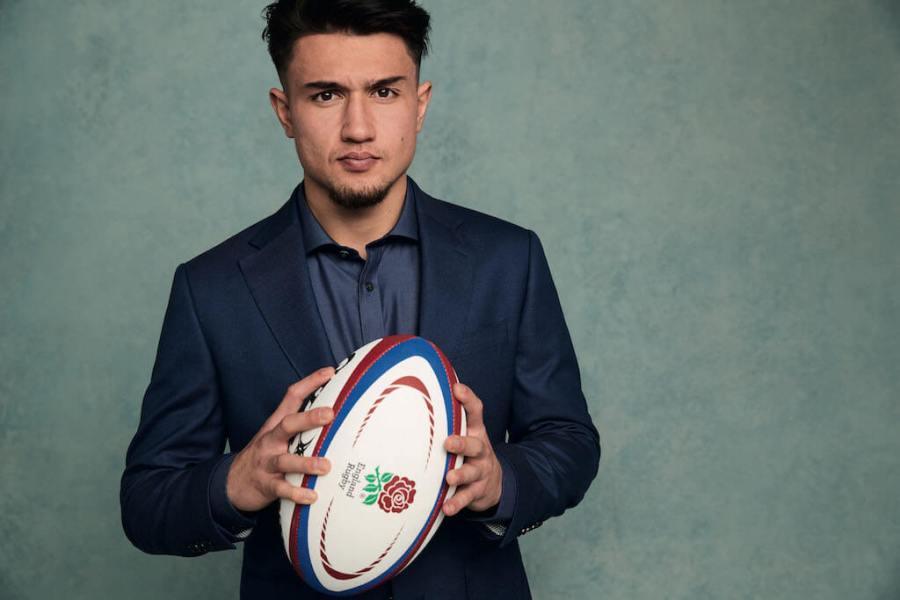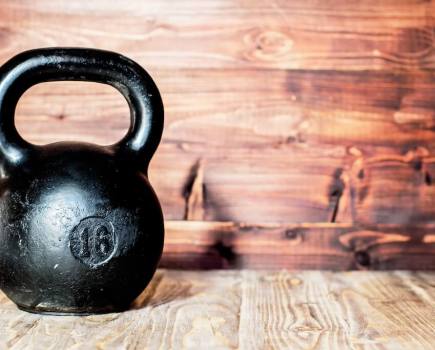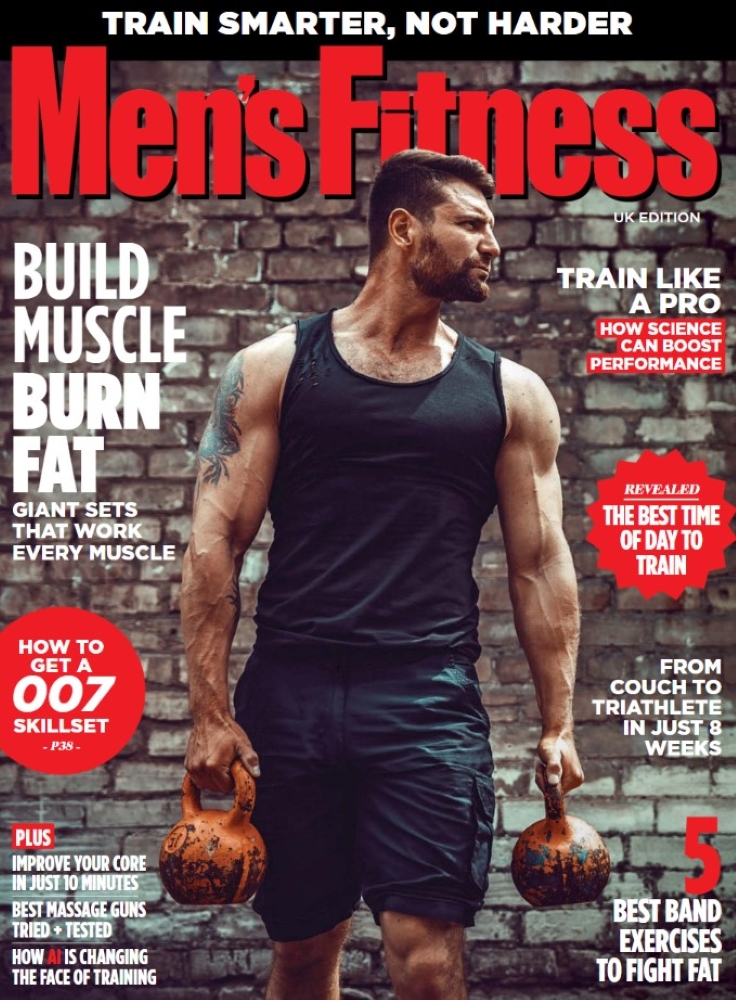Marcus Smith interview – in partnership with Charles Tyrwhitt. MF meets the rising star of English rugby…
Some sportsmen burst onto the scene, one big game catapulting them into the limelight; others have always seemed destined for the top. Marcus Smith, the 24-year-old Harlequins and England Rugby fly-half, sits firmly among the latter.
After a stellar rise through the academy systems at club and country, Smith made his Premiership debut at just 18, with a full England cap coming a few years later. A true generational talent, his creative spark helped Harlequins to their first league title in ten years in 2021, saw him called up to the British and Irish Lions that same year, and come away as the highest points scorer at the 2022 Six Nations.
Speaking to Men’s Fitness about his partnership with menswear brand Charles Tyrwhitt, here Smith covers the expectation to perform, setting goals for the future and how he hones game-breaking athleticism with strength and speed work…
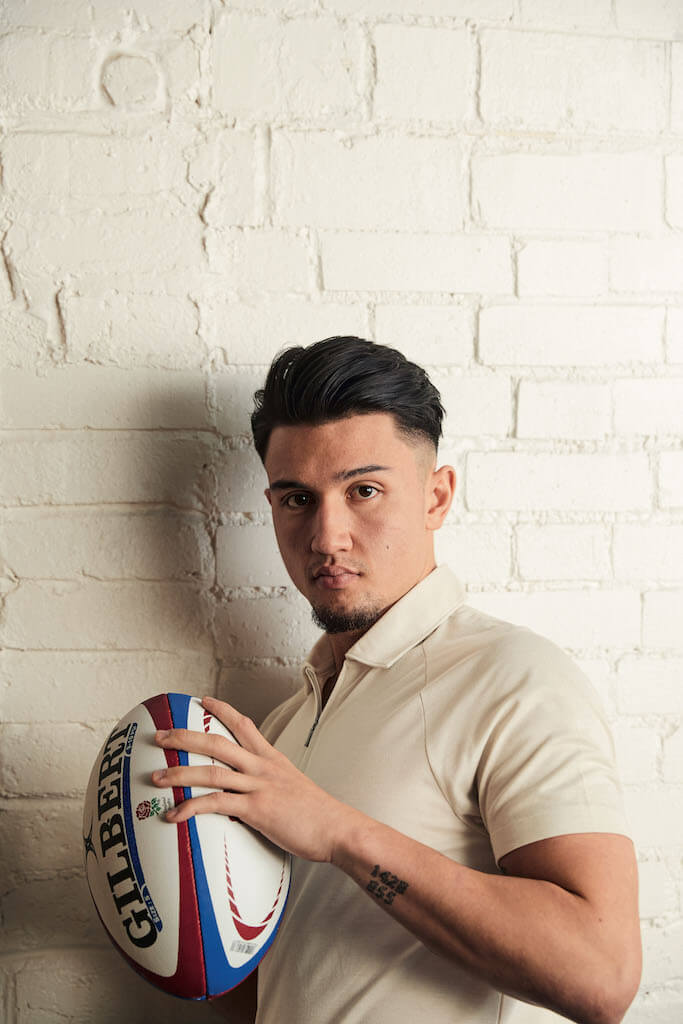
Marcus Smith wears the Charles Tyrwhitt Chalk Zip-Neck Polo
Marcus Smith Interview
Men’s Fitness: It seems like you’ve been destined to get to where you are now from a young age – how have you managed to deal with that constant pressure and expectation?
Marcus Smith: I love pressure. It’s what gives me the fear and the excitement to work harder. I only feel under pressure in instances when I’m not prepared, and my preparation is one thing I treat with a lot of pride and respect. Before every game, I know that I’ve done everything possible to go out there and express myself.
I work as hard as I can in the week to make match day as enjoyable as possible. As well as that, I’ve got a brilliant support network around me, who take my mind off rugby when that’s needed.
MF: When you first progressed from youth rugby to being a professional, how much of a step up was that?
MS: It was tough, but I’m very grateful for the experiences I had growing up. I was part of the England age-group system, which challenges you against the best players from in and around Europe.
At the under-20s, there’s the Junior World Cup as well, so I was playing against the likes of South Africa when I was 18 or 19 years old, which was a good marker and a chance to test myself against the best players in the world at that age.
The school system is also really improving here in England and I massively improved in my time at Brighton College. Those experiences set me up to be able to handle big-pressure environments from a young age.
For me, the greatest challenge was my physicality. Obviously I’m not the biggest now, but I was even smaller then, so I’ve had to work hard on that front.
MF: Was it a linear progression to where you are now, or were there any setbacks along the way?
MS: When I was younger, I preferred playing football and I always wanted to be a footballer. But I had a big setback when I was about 14 and didn’t make it through a trial. That broke me, and I remember crying all the way home.
I also didn’t make the England South-East rugby team when I was 16, which I was equally gutted about. Luckily an opportunity came up for England North a few weeks later, but it’s definitely not been a completely straight line for me.
MF: You’ve said you’re a big believer in writing down your hopes and dreams for the future. How does that help you? And what are some of the big goals you’re still working towards?
MS: I still do that – probably not as often as I should, but once a year I’ll write a list of my goals in the short-, medium- and long-term. This year, one of my short-term goals was to make the Six Nations squad and next it’s to make the World Cup squad – and play a part in a team that’s hopefully going to win it.
Off the field, longer term I want to create a foundation in the Phillipines to help underprivileged kids get an opportunity to change their lives – whether that’s through sport or education. I want to help in any way I can over there.
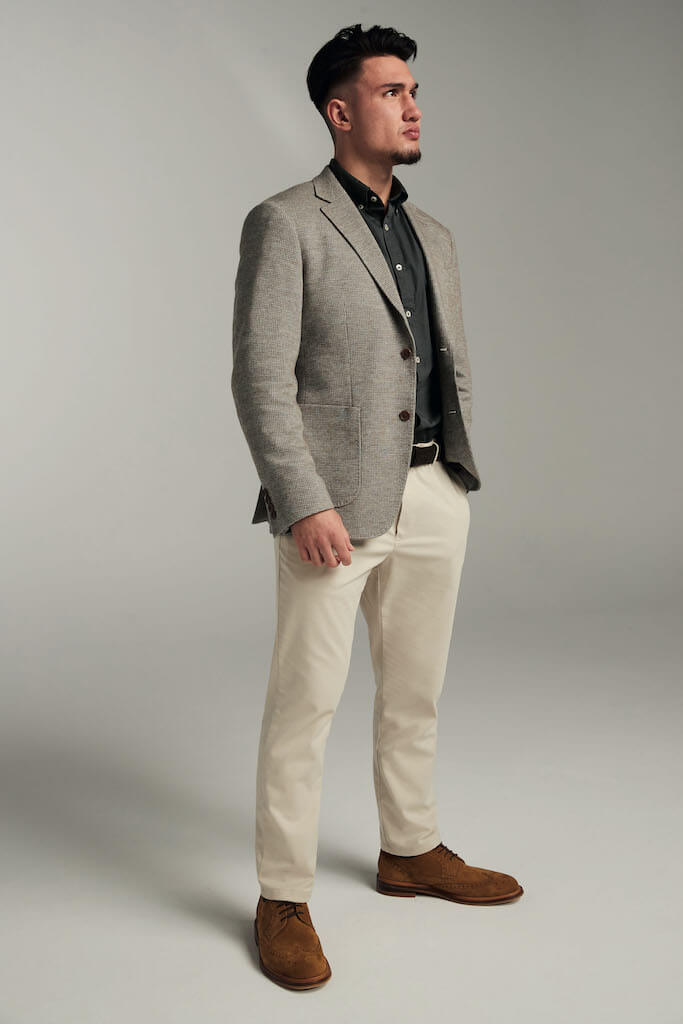
Smith wears the Charles Tyrwhitt Oatmeal Puppytooth Jacket and Washed Fine Twill Shirt
MF: What drew you to Charles Tyrwhitt?
MS: Charles Tyrwhitt was an England sponsor when I first started training with the squad and I always enjoyed the days we would get to try some of the new collections out. When you’re a sportsman, you’re constantly in tracksuits and casual clothing, so away from rugby – when I’m with friends or family – I want something different. Wearing Charles Tyrwhitt clothing allows me to look and feel the part.
MF: Speed and agility are two of your greatest assets – what sort of drills do you do to work on those skills?
MS: When I was younger, I was actually pretty slow and chubby, so I’ve had to work on my speed and have been relentless at improving that since I was young. More recently, in my off-season I’ve started training with Daley Thompson, who’s obviously a British legend. He’s made me believe I can run faster, and he’s given me different drills and goals to help me develop as an athlete.
I’ve been doing a lot of things on the seafront down in Brighton. There’s a steep hill – about 250m long – that he makes me sprint up (while he’s stood at the top smiling).
MF: How about strength training – what does a typical week in the gym look like?
MS: I try to do three gym sessions a week: an upper body, a lower body and more of an upper-body pump. My legs are naturally stronger than my upper body, so I have to work a bit harder on that.
Obviously you need to supplement any training with the right nutrition, and learning that has made the biggest difference for me. After every session, I’ll have my Optimum Nutrition shake for muscle growth and recovery, as well as casein protein before I go to bed.
MF: Do you enjoy the conditioning side of being a rugby player, or is it just a necessary part of the job?
MS: I love that side of things. The majority of my life is training, and I love the feeling of going after something to try and make it better – whether that’s speaking in meetings, leadership skills, physical attributes or rugby skills. You also bond as a team when you go through tough training sessions together, so they benefit more than just fitness.

